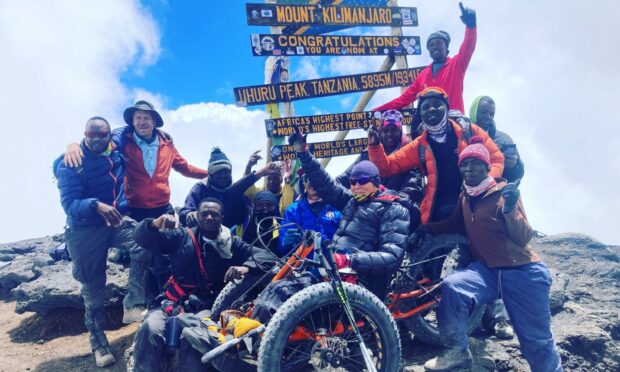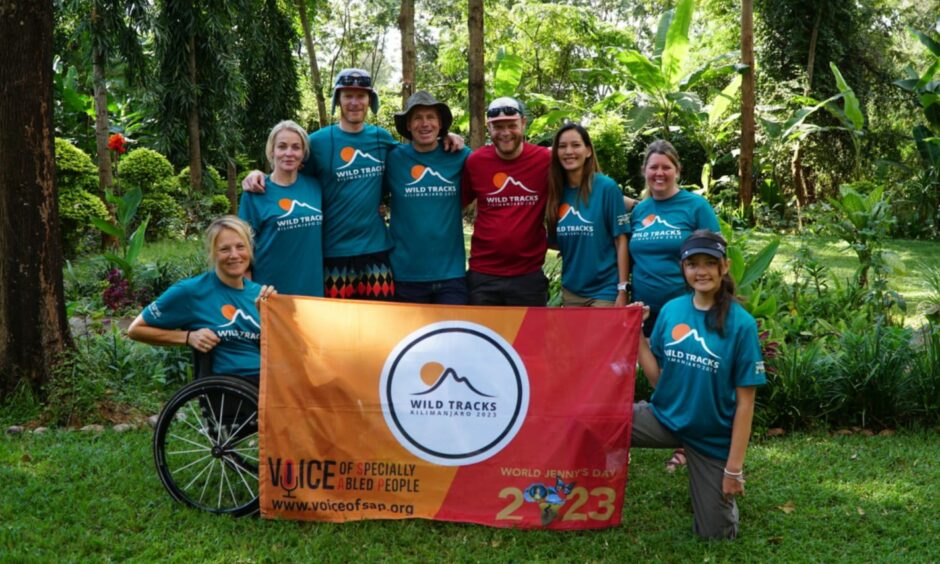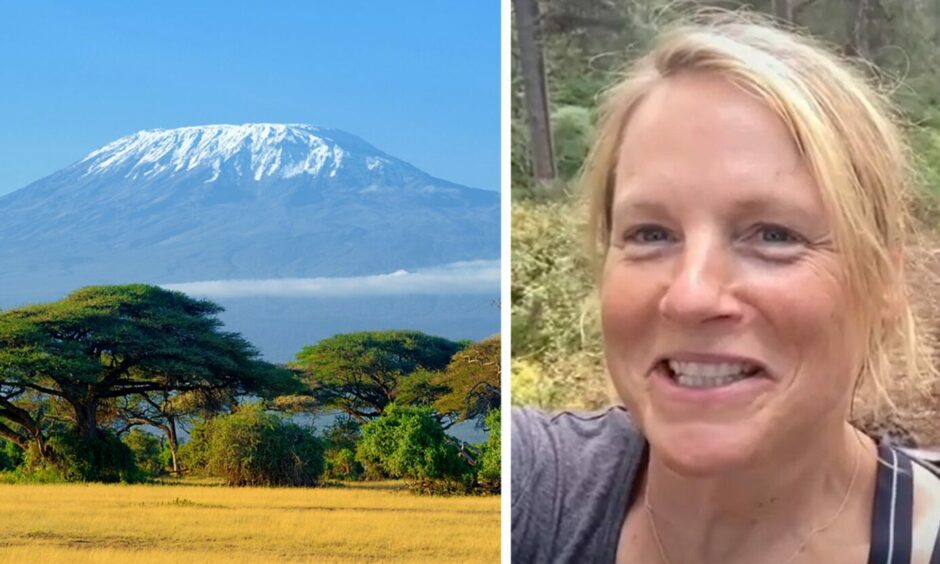Karen Darke didn’t realise immediately the symptoms she experienced recently were due to Covid.
“I just felt really tired and assumed it was due to climbing a mountain.”
The Paralympian had indeed done just that, completing the epic task of scaling the 19,341ft high Mount Kilimanjaro on a hand bike.
She completed the climb in six days as part of a team who battled altitude sickness, different weather zones and terrain that was at times impossible to navigate on her special hand-pedalled trike.
The diverse team on the climb also included visually impaired double Paralympic gold medallist and climber Steve Bate and Inverness-based film-makers Mike Webster and Sherrill Mason.
Climb was harder than anticipated
“It was an incredible experience, but much harder than we all thought”, says Karen.
“Steve agreed that we’ve done fairly tough things, both physically and mentally, including training for the Olympics. But this one was up there.”
Only four of the eight-strong team, plus guides and porters, made the summit and for a time Karen doubted whether she would be one of them.
Having made their way through Kilimanjaro’s five climate zones, which range from rainforest to Arctic conditions, altitude took its toll.
Four members of the group turned back.
“We anticipated altitude would be not be wonderful, but everyone in the group at some stage suffered headaches, loss of appetite, nausea and, in the more or more extreme cases, vomiting.”
During the ascent, Karen needed help from porters to negotiate her hand bike over massive boulders littering the route.
But around Gilman’s Point, at 18,885 feet, the steep, rocky scree slope became too difficult for negotiate on wheels.
For a short distance she was given a piggy back by members of the porters team before getting back on the bike to reach the summit.
“Even though there were a lot of large boulders on the path on the way up, and bits that would have been impossible to get through without being lifted through a gap or over boulders, it was relatively doable with the extra support.
“But, on the last day, we all stopped and thought ‘how are we going to do this?’
“At that point it looked totally unfeasible.”
Karen Darke has mixed feelings on the Kilimanjaro summit
She said she had mixed feelings about eventually reaching the summit as others didn’t make it.
“Three of us shared the summit together. As we descended another member of the team made it up, but others had turned back due to the altitude.
“I had always envisaged we would all be there together, so it was a little disappointing when you’re there but not everyone is.”
Then there was the descent to think about.
“That was also on my mind, about coming down. You don’t really fully enjoy the summit because you know to have to reverse it all safely.”
But after another piggy back over the same section, and worries over her bike’s braking capacity on descent, it was safely negotiated.
“When I got back on the bike and pointed it down the scree it all went pretty quickly. I was pleasantly surprised.”
The gruelling six-day expedition was just one part of a double-header African fundraising adventure.
It was preceded by the Kenya Safari Bike Ride when she completed a cross-country trek through the Kenyan Game Park from Kilimanjaro to the coast.
Both trips were undertaken to raise funds and awareness for charities supporting improved physical and mental health. They are Voice of Specially Abled People Inc. and World Jenny’s Day.
A fundraising page has been set up to support both organisations and so far has brought in over £2,000.
From the Himalayas to the South Pole
They were the latest marathon expeditions completed by Karen who in 1993 suffered a major accident while climbing cliffs at Cove in Aberdeen, leaving her paralysed from the chest down aged 21.
Since then she achieve some remarkable feats including hand-skiing across Greenland, hand-biking through the Himalayas and scaling California’s El Capitan.
In 1996 she hand-biked across the Himalayas from Kazakhstan into Pakistan. She returned in 2005 and 2018 to cross the Indian Himalayas.
In 2012 she won a silver medal at the London Paralympics women’s road time trial and then gold at Rio in 2016.
In December, she completed the Pole of Possibility, a record-breaking cycle and ski expedition to the South Pole.
So what’s next? “I’ve nothing in mind, no plans at the moment.
“I just want to make the most of the time at home for a while and enjoy the beauty of Scotland.”




Conversation